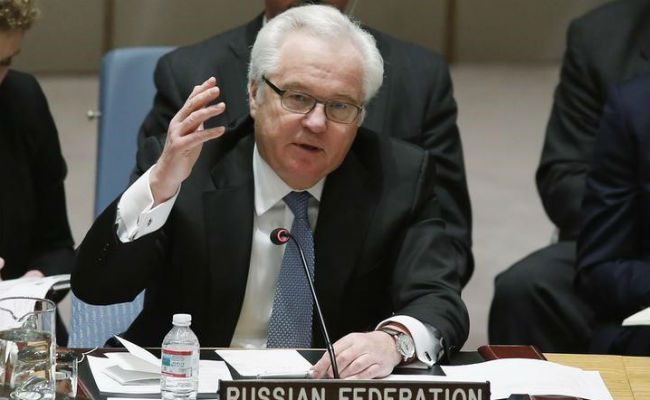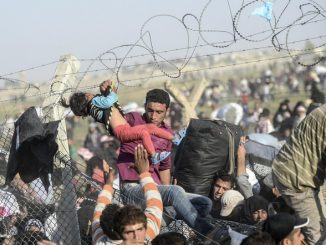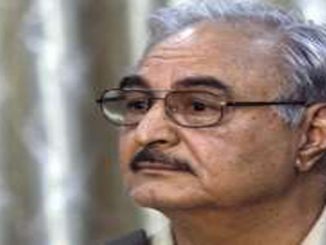
The General Assembly voted Russia off the UN Human Rights Council on Friday, a stunning rebuke to the country which is increasingly being accused of war crimes over its intervention in Syria.
The 193-member General Assembly elected 14 members to 47-nation council, the UN’s main body charged with promoting and protecting human rights.
Russia, which received 112 votes, lost its regional seat to Hungary, with 144 votes, and Croatia with 112 votes. Russia’s mission to the UN did not immediately respond to requests for comment.
Iraq, Saudi Arabia, Egypt, China, Brazil, Rwanda, Hungary, Cuba, South Africa, Japan, Tunisia, the US and UK all won seats on the council. Guatemala was the only country running for a seat beside Russia to not be elected.
It was the first time one of the permanent five members of the security council had failed to get elected to the HRC since its formation a decade ago, and followed a campaign by human rights groups opposing Russian membership because of its role in the bombing of Syrian cities, eastern Aleppo in particular.
Russian crimes in Syria
“They bomb a hospital one day, they run for the Human Rights Council the next. And they wonder why they missed the cut,” a western diplomat said.
“In rejecting Russia’s bid for re-election to the Human Rights Council, UN member states have sent a strong message to the Kremlin about its support for a regime that has perpetrated so much atrocity in Syria,” said Louis Charbonneau, UN director at Human Rights Watch.
“Countries should have a chance to reject those whose candidacies are so severely compromised, as they did today. We have already said that Saudi Arabia, which was re-elected without competition, doesn’t belong on the council in light of its indiscriminate attacks on civilians in Yemen. We’ll be keeping all members’ rights records under the microscope while they’re on the council. Next year, UN member states should make sure that all regional groups have real competition so no one is guaranteed victory,” he said.
“Russia deserves this defeat, but it will only increase Moscow’s contempt for the UN,” said Richard Gowan, a UN expert at the European Council for Foreign Relations. “The Russians only really care about the security council anyway, and they may well respond by stirring up more trouble there over Syria or other crises.”
Vitaly Churkin, the Russian envoy, shrugged off the rebuff, saying the countries who beat Russia “are not as exposed to the winds of international diplomacy.”
“It was a very close vote and very good countries competing, Croatia, Hungary. They are fortunate because of their size, they are not exposed to the winds of international diplomacy. Russia is very exposed. We’ve been in the UNHRC for several years, and I am sure next time we will stand and get back in,” said Russia’s UN envoy Vitaly Churkin. Russia is eligible to run next year, against a new set of countries.
Pressure on Russia
Ahead of this year’s vote Russia came under concerted pressure from human rights organizations.
“The non-election of Russia shows that the nations of the world can reject gross abusers if they so choose,” said executive director Hillel Neuer. “This makes the election of Saudi Arabia, China and Cuba even more preposterous.”
A petition signed by 80 NGOs, including Human Rights Watch and Refugees International, asked the voting countries to “question seriously whether Russia’s role in Syria which includes supporting and undertaking military actions which have routinely targeted civilians and civilian objects renders it fit to serve on the UN’s premier inter-governmental human rights institution.”
Russia dismissed the petition, published this week, as “cynical” and “dishonorable,” and said the accusations were motivated more by politics than by concern for human rights. Moscow, which has been conducting airstrikes in the country over the past year, says that it is acting legally, following an official call for assistance from the Syrian government, and insists that its war efforts are targeted at terrorists.
China, Cuba, Egypt, Iraq, Rwanda, which all succeeded in their quest for council membership, were also accused by NGOs of being undeserving of a place on the UNHRC.
Russia launched an air campaign on September 30 last year in support of Syrian government forces, in a military intervention that has been widely credited with helping turn the balance of power in favour of President Bashar al-Assad.
Since then, at least 9,364 people have been killed in Russian raids, according to the Britain-based Syrian Observatory for Human Rights.
The monitor said the death toll included about 3,800 civilians.
A further 20,000 civilians have been wounded in Russia’s year-long offensive of air strikes.



